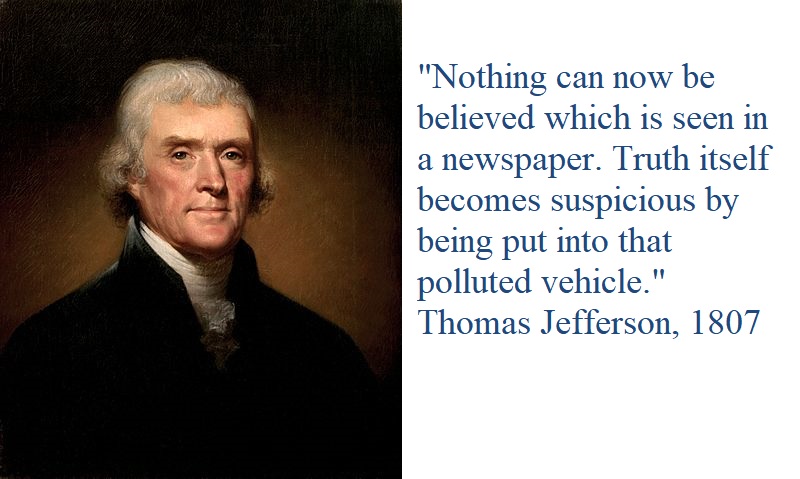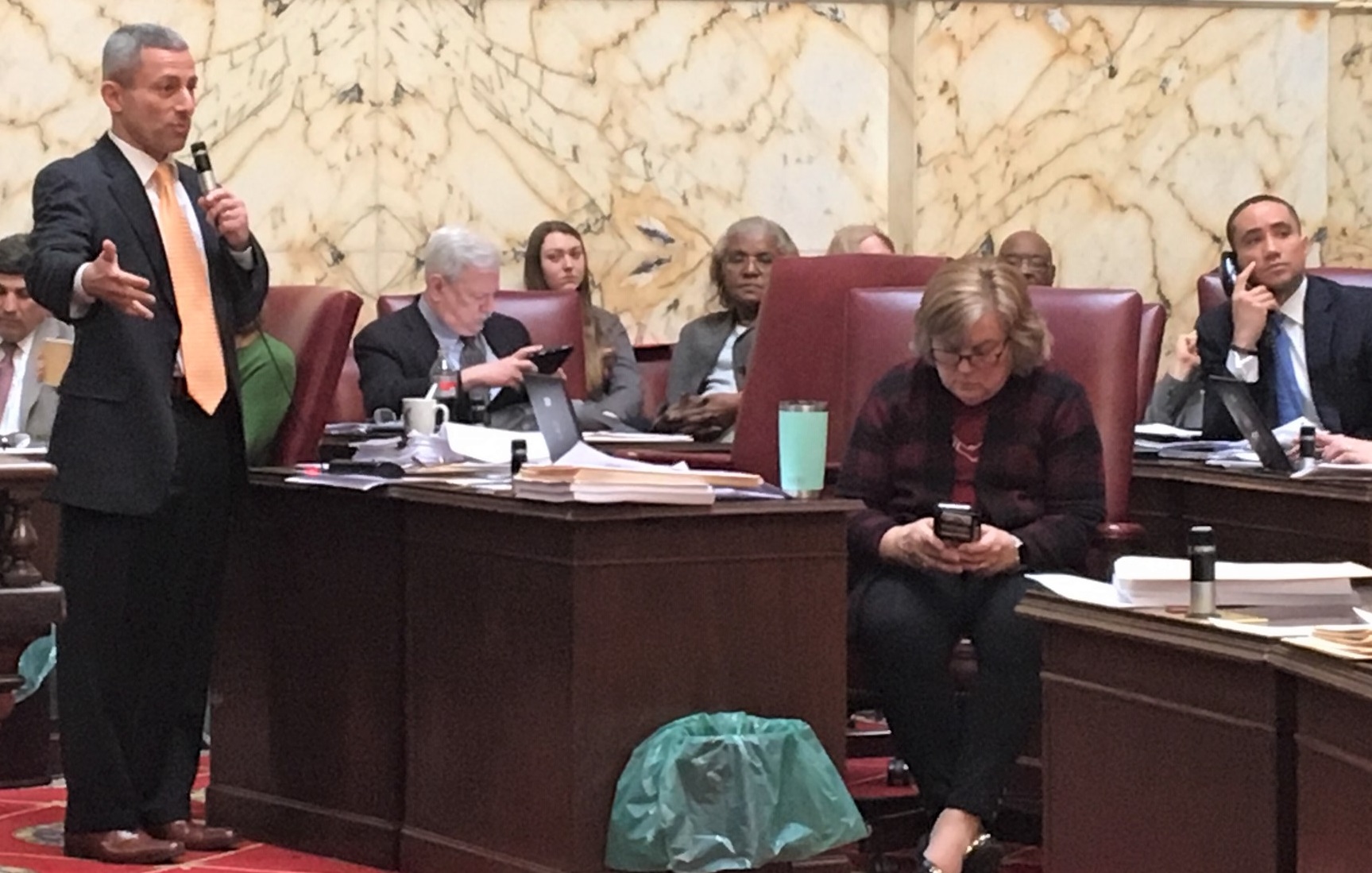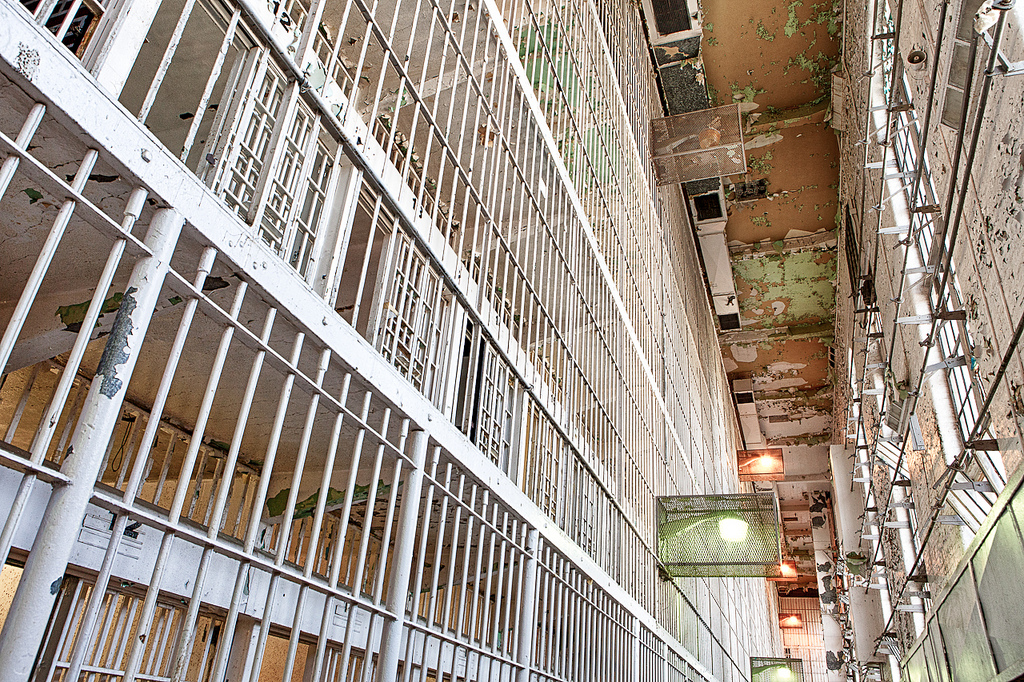By Len Lazarick
Editorials across the nation were published last week in defense of a free press, and they often quoted Thomas Jefferson to support them. But when he was president, Jefferson was not so fond of newspapers of the day.
As managing editor of the Patuxent Publishing newspapers in Baltimore County back in the 1990s, I oversaw the Jeffersonian newspaper, which led me to these very Trumpian quotes from that great and very conflicted man.
“Nothing can now be believed which is seen in a newspaper. Truth itself becomes suspicious by being put into that polluted vehicle …The man who never looks into a newspaper is better informed than he who reads them: inasmuch as he who knows nothing is nearer to truth than he whose mind is filled with falsehoods and errors.” Letter to John Norvell, June 7, 1807.
It is not clear what led to these sentiments, though his 1804 re-election campaign included the allegations about his affair with his slave Sally Hemmings. It was not until this century that the consensus of historians came to the conclusion that Jefferson was indeed the father of Sally Hemmings’ children.
The newspapers of Jefferson’s time and at the time of the drafting of the First Amendment did not have the commitment to fact-based, balanced journalism that has existed for most of the last century. They were generally very partisan and biased, often reflected in their names, such the Cecil Whig and the Easton Star-Democrat in Maryland.
This just goes to show that the charge of “fake-news” by a president is not new, but the judgment is often given in private, rather than constant tweets.
The full quote from Jefferson
Here is the full quote of the letter to Norvell as published by the Library of Congress, including an image of the actual letter in Jefferson’s hand:
“To your request of my opinion of the manner in which a newspaper should be conducted, so as to be most useful, I should answer, “by restraining it to true facts & sound principles only.” Yet I fear such a paper would find few subscribers. It is a melancholy truth, that a suppression of the press could not more compleatly deprive the nation of it’s benefits, than is done by it’s abandoned prostitution to falsehood.
“Nothing can now be believed which is seen in a newspaper. Truth itself becomes suspicious by being put into that polluted vehicle.
“The real extent of this state of misinformation is known only to those who are in situations to confront facts within their knowledge with the lies of the day. I really look with commiseration over the great body of my fellow citizens, who, reading newspapers, live & die in the belief, that they have known something of what has been passing in the world in their time; whereas the accounts they have read in newspapers are just as true a history of any other period of the world as of the present, except that the real names of the day are affixed to their fables.
“General facts may indeed be collected from them, such as that Europe is now at war, that Bonaparte has been a successful warrior, that he has subjected a great portion of Europe to his will, &c., &c.; but no details can be relied on. I will add, that the man who never looks into a newspaper is better informed than he who reads them; inasmuch as he who knows nothing is nearer to truth than he whose mind is filled with falsehoods & errors. He who reads nothing will still learn the great facts, and the details are all false.”






Recent Comments